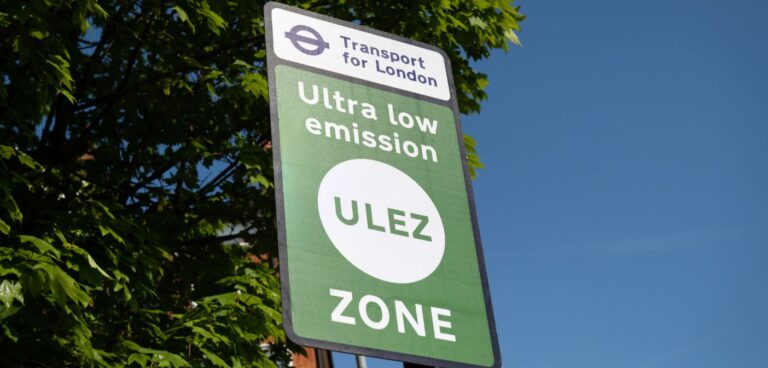A consultation on plans to expand the Ultra Low Emission Zone (ULEZ) to cover almost the whole of London from 29 August 2023 has been launched.
Despite delivering a range of schemes designed to tackle air pollution, climate change and traffic congestion in the UK capital, the Mayor of London and Transport for London (TfL) believe further action across the city is required.
According to London mayor Sadiq Khan, in the short term, expanding the ULEZ London-wide could have the biggest effect on emissions relative to the cost to Londoners as a whole. Thus, the current £12.50 daily charge level for cars, vans and motorbikes that do not meet the standards would be retained. This would be supported by a revision of the Mayor’s Transport Strategy, which is also part of the consultation.
The consultation will also ask Londoners to help shape the future of road user charging (RUC) in the capital, which could include scrapping existing charges, such as the Congestion Charge, and replacing them with a single RUC scheme that uses more sophisticated technology and is designed to make it as simple and fair as possible for road users.
According to TfL, ULEZ standards in central London have helped reduce nitrogen dioxide (NO2) at the roadside by around half and it anticipates that expanding the ULEZ to outer London would have a significant impact by the end of 2023.
And despite more than four out of five vehicles reportedly already complying with current ULEZ standards, TfL estimates that the number of cars not meeting ULEZ standards each day in outer London would fall from 160,000 to 46,000 and the number of vans from 42,000 to 26,000.
The proposals would also mean the air around an additional 145 schools, mostly in outer London, would meet the interim World Health Organization target for NO2, and reportedly see a further 340,000 Londoners living in areas meeting the international health-based standards.
Alex Williams, TfL’s director of city planning, said: “It’s clear that the capital’s toxic air is continuing to blight the lives of Londoners and progress in outer boroughs is slower than anywhere else. The number of premature deaths and current projections for diseases linked to poor air quality is unacceptable.
“We must act at pace to tackle this, which is why we are proposing to expand the ULEZ London-wide next year and are looking at the longer-term solution of a new form of road user charging. We would encourage people to respond to this consultation to help shape our plans.”
For those who own older, more polluting vehicles it is proposed there will be a vehicle scrappage scheme to help people adapt to the change if the proposals are confirmed by the Mayor. This would build on the previous £61m scheme, which reportedly took more than 15,000 of the dirtiest vehicles off the road.
TfL is working to clean up its services with more than 800 zero-emission at tailpipe buses, making it the largest green fleet in western Europe. Current licensing standards mean that over a third of black cabs are now zero-emission capable, and there are more than 10,000 charging points now within the M25 – a third of the UK’s total.
TfL is also proposing to remove the annual £10 per vehicle Auto Pay registration fee, while ensuring financial penalties for non-payment remain an effective deterrent by increasing the penalty by £20, or £10 if paid within 14 days.





